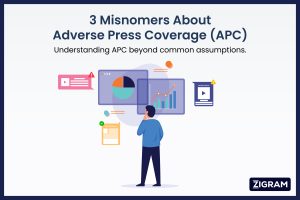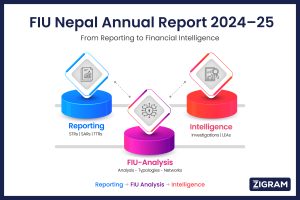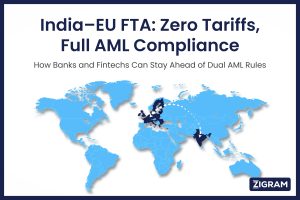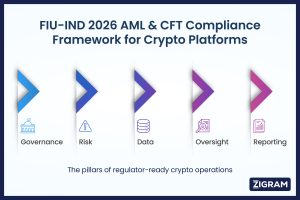Table of Contents
Global watchdogs warn that charitable giving – including the Islamic obligation of zakat – has sometimes been exploited to launder money or finance illegal causes. As the Financial Action Task Force (FATF) notes, “charitable fundraising has also been used to provide cover for the financing of terrorism.” Likewise, the OECD cautions that “the abuse of charities for… money-laundering purposes is organized in many cases.”
These concerns have driven decades of oversight. In the early 2000s, several Middle Eastern charities came under international sanctions. In response, Gulf governments and international agencies began tightening rules around non-profit organizations (NPOs), enacting AML/CFT laws and requiring charities to register and audit their funds. By 2023, FATF had updated its best-practices to protect legitimate nonprofits – yet warned that abuse of zakat and charitable flows for illicit ends remains a pressing risk.
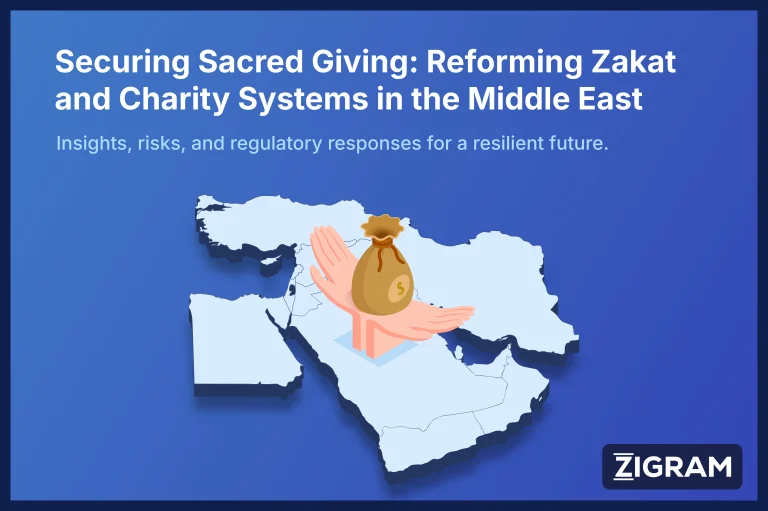
Case Studies: Misuse of Zakat and Charity Channels
Qatar: During the 2017 Gulf diplomatic crisis, several Qatari charities, including Qatar Charity and Eid Charity, were listed by regional countries on a “terror finance watch list.” Qatar rejected the allegations and cited its commitment to counter-terrorism. In the U.S., lawsuits allege that millions in donations were routed to proscribed Palestinian groups under the guise of aid. Qatar denies wrongdoing, but the cases underscore how humanitarian channels can be misused for illicit financing.
Sudan: Post-2019 investigations revealed systemic misuse of zakat under the Bashir regime. Funds intended for the poor were allegedly diverted to regime-linked entities, including religious charities with commercial assets. This internal redirection of spiritual giving toward political patronage weakened trust in the zakat system.
Jordan: Authorities have acted against charities with suspected ties to the Muslim Brotherhood. Several organizations faced legal scrutiny for governance failures such as opaque ownership and unapproved fundraising. While primarily tied to domestic politics, the case highlights risks when charitable financial flows lack transparency.
Other Examples: Across the region, incidents involving front NGOs, donor blacklists, and state asset freezes reveal recurring vulnerabilities. While many cases involve terrorist financing, broader misuse for political, criminal, or personal gain remains a persistent concern.
Regulations and Oversight: Country-by-Country
Saudi Arabia
Saudi Arabia manages zakat centrally through the Zakat, Tax and Customs Authority, treating it as a public financial obligation. Charities are licensed under the Ministry of Human Resources and Social Development. AML/CFT controls have been enhanced under the AML Law of 2017 and later reforms. The Saudi FIU operates under the Saudi Central Bank and collaborates with domestic institutions to monitor non-profit financial activities.
United Arab Emirates
The UAE enforces one of the most comprehensive charity oversight systems in the region. NPOs must be licensed by federal or emirate-level authorities, including the Ministry of Community Development and Dubai's Islamic Affairs department. The 2018 AML/CFT law and subsequent fundraising regulations require transparency in financial flows and oversight by the UAE FIU.
Qatar
Qatar regulates charities via the Qatar Authority for Charitable Activities (QACA), with mandates for registration, audits, and donor transparency. Qatar has passed several laws to enhance compliance, although concerns remain regarding oversight gaps within offshore zones. The government has taken steps to enhance collaboration with international bodies and implement FATF-aligned practices.
Egypt
Egypt’s 2019 NGO law introduced more stringent governance and registration requirements for NPOs. The Ministry of Social Solidarity supervises the sector, and banks are mandated to monitor charity accounts. Regulatory actions have included freezing of assets and dissolution of organizations, although civil society groups have raised concerns about overreach.
Jordan
Jordan requires all charities to register and maintain transparent financial records. The Ministry of Social Development works with the Jordanian FIU to supervise cross-border donations and charitable finances. Recent actions include enforcement against unlicensed fundraising and failure to submit financial disclosures.
Enhanced Focus: Common Vulnerabilities in Charity Networks
Despite increased regulation, structural vulnerabilities within zakat and charity systems remain a concern. These vulnerabilities include:
Cash-Based Collection:
A significant portion of zakat and sadaqah donations are collected in cash, particularly at mosques, community events, or via informal volunteers. This makes it difficult to maintain verifiable audit trails and exposes the system to the risk of fund diversion or commingling with illicit proceeds.
Informal Transfer Channels:
Many charitable disbursements still rely on hawala-like networks or informal money transfer systems, which lack the transparency of formal banking channels. These are especially prevalent in conflict zones or regions with underdeveloped financial infrastructure.
Weak Beneficiary Vetting:
Some organizations, especially smaller NGOs or informal charitable collectives, may not perform due diligence on beneficiaries. This creates openings for funds to be inadvertently or deliberately directed to high-risk individuals or groups.
Limited Financial Expertise:
Smaller charities often lack the resources or trained personnel to implement effective AML/CFT controls. Financial monitoring, risk assessments, and suspicious activity reporting may be weak or absent.
Front Organizations:
In several jurisdictions, unregistered or dormant organizations have been used to channel funds under the guise of charity. These front entities are designed to mimic legitimate organizations but serve to disguise the origin or destination of funds.
Cross-Border Online Giving:
The rise of digital crowdfunding and online charity platforms has expanded the reach of charitable campaigns, but also reduced visibility over donor identities and fund destinations. This is particularly risky when campaigns are hosted outside of national regulatory purview or leverage anonymous digital wallets and cryptocurrencies.
Misuse of Waqf:
Religious endowments (waqf) sometimes operate with minimal external oversight. Without modern governance structures or transparency standards, these assets can be repurposed for personal or political gain.
Reputational Shielding:
Charities often benefit from public goodwill, which can dissuade donors, banks, or even regulators from questioning their activities. This perception can be exploited to avoid scrutiny.
These vulnerabilities do not reflect malfeasance by the majority of charitable actors. However, they underscore the importance of sector-specific AML training, digital accountability systems, and real-time monitoring tools.
Government Oversight and Enforcement
Regulators in Gulf and Arab states are increasingly implementing multi-pronged approaches:
- Financial Intelligence Units (FIUs) monitor NPO bank accounts for suspicious transactions and coordinate with law enforcement. In countries like the UAE, Saudi Arabia, and Jordan, FIUs share data across borders to detect illicit flows.
- Charity Registrars and Auditors oversee registration, annual reporting, and on-site inspections. Licensing bodies are typically embedded within social welfare or religious affairs ministries.
- Central Banks and Financial Regulators mandate that commercial banks apply enhanced due diligence on charity-related accounts and transactions, particularly cross-border payments or cash-heavy inflows.
- Islamic Finance Boards increasingly play a role in ensuring that zakat-compliant banking and charitable operations adhere to both Shariah and modern AML standards.
- Law Enforcement and Judiciary prosecute misuse through sanctions, fines, and criminal proceedings. Some high-profile cases have resulted in asset freezes, NGO closures, or international designations.
- International Cooperation through MENAFATF, FATF, and bilateral partnerships is helping harmonize charity sector oversight and share threat intelligence.
Solutions and the Role of Technology
Preventive Measures should start at the organizational level. Standardized frameworks for due diligence, donation documentation, and public disclosures can significantly improve accountability. Charity boards should engage financial professionals to establish strong governance.
ZIGRAM’s RegTech Solutions provide a robust technological layer for compliance and monitoring:
- PreScreening.io can screen all donors, directors, and partner organizations against 3,000+ watchlists including OFAC, UN, and national designations.
- Entity Hero maps linkages and red flags between individuals, entities, and geographies using open-source intelligence.
- Transact Comply applies transaction pattern analysis to detect anomalies in charitable flows, such as round-tripping, large same-day transfers, or payments to high-risk jurisdictions.
These tools can be integrated with charity management systems and donor platforms to proactively flag risks, generate audit trails, and support reporting obligations.
Blockchain and Digital Giving represent an emerging frontier. Pilot projects using blockchain-based zakat platforms have demonstrated greater transparency in end-to-end fund tracking. Smart contracts can automatically allocate donations to verified causes without human intermediaries.
Cross-Sector Collaboration is key. Financial institutions, charity regulators, and tech providers must co-create guidance and share threat indicators. Regional databases of high-risk entities, maintained with private-sector input, can improve real-time decision-making.
Conclusion
The Middle East’s charitable landscape reflects a rich tradition of faith-based giving. But this strength also presents unique vulnerabilities. As case studies have shown, even a few instances of abuse can compromise public trust and financial integrity. While regulatory regimes have matured across Gulf and Arab nations, further attention is needed to modernize systems, especially in the face of evolving digital risks.
By adopting technology-led, risk-based approaches, governments and charitable institutions can protect the sanctity of zakat and philanthropic aid. Solutions from firms like ZIGRAM demonstrate how data intelligence, screening tools, and real-time analytics can elevate compliance while safeguarding humanitarian impact. The goal must remain clear: ensuring that every charitable dirham, riyal, or pound reaches those it was meant to help – and not into the shadows.
Sources
Best Practices on Combating the Abuse of Non-Profit Organisations
UAE drafts new law on charitable fundraising to fight money laundering
Treasury Designates Al Haramain Islamic Foundation | U.S. Department of the Treasury
Qatar rejects as baseless terrorism blacklist by four Arab states | Reuters
Sudan govt to purge Zakat Chamber of corruption – Dabanga Radio TV Online
Treasury Designates Al Haramain Islamic Foundation | U.S. Department of the Treasury
UAE drafts new law on charitable fundraising to fight money laundering
Secure Your Cause: Best Practices For Anti-Money Laundering In Charities
- #Zakat
- #Charities
- #Donations
- #FinancialCrime
- #Compliance
- #MiddleEast
- #MoneyLaundering

